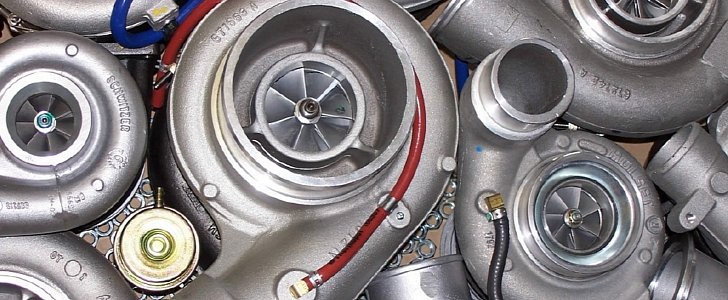Engines For Africa: Your Relied On Companion for Motor Needs
Engines For Africa: Your Relied On Companion for Motor Needs
Blog Article
A Full Overview to Choosing the Right Engine for Your Project
Picking the ideal engine for your project is an essential choice that can substantially influence its total success. It is necessary to thoroughly specify your job requires, assess efficiency demands, and take into consideration user-friendliness along with various other necessary factors. Furthermore, recognizing the neighborhood support offered and looking at cost implications can even more refine your selection. Each of these components plays a crucial role in guaranteeing that your picked engine not only meets prompt objectives however additionally straightens with lasting aspirations. As we explore these considerations, you might find that the nuances of each element expose more than originally prepared for.
Specify Your Project Requirements
Defining your project requires is a vital action in picking the ideal engine for effective application. A thorough understanding of your task's goals will direct you in determining the attributes and capabilities needed from an engine. Begin by detailing the extent of your task, consisting of the desired capability, target audience, and the specific end results you intend to attain.
Following, think about the technical needs that align with your job goals. This consists of reviewing the compatibility of the engine with existing systems, as well as the programs languages and frameworks that will be made use of. Additionally, evaluate the degree of scalability needed to accommodate future growth or changes popular.
Spending plan restraints likewise play a crucial duty in specifying your task needs. Establish a clear economic structure to direct your decision-making process, making certain that the engine chosen fits within your budget while giving the required capability.
Evaluate Efficiency Needs

Engines that sustain horizontal scaling are typically better for bigger applications. Furthermore, assess the engine's efficiency under various conditions, such as peak use circumstances, to ensure it fulfills your integrity criteria.
Take Into Consideration Convenience of Usage
While technological specifications are crucial, the simplicity of usage of an engine can considerably influence the growth process and general job success. An instinctive interface, clear documentation, and structured operations can drastically minimize the knowing curve for developers, enabling them to concentrate on creativity and analytical as opposed to grappling with complex tools.
When evaluating an engine's convenience of use, consider the onboarding experience. A well-structured intro, full with tutorials and example projects, can Going Here promote a smoother change for new customers. In addition, the clearness and comprehensiveness of the engine's documentation play a critical function; thorough guides and API references can empower designers to fix and implement attributes successfully.
An engine that enables for very easy adjustments can be extra user-friendly, as designers can customize it to fit their certain needs without comprehensive hassle. Ultimately, picking an engine that focuses on simplicity of usage can lead to a much more pleasurable and effective development experience.
Assess Neighborhood and Support
The stamina of an engine's community and support network can significantly affect a designer's experience and success. When examining an engine, consider the size and activity level of its community.
Furthermore, evaluate the accessibility of main assistance networks. Reputable documentation, responsive consumer assistance, and routine updates are essential for addressing technological problems and keeping your project on course. Engines For Africa. Energetic areas likewise foster collaboration, giving chances for networking and responses, which can be vital, especially for tiny teams or independent designers
Furthermore, investigate the existence of community-run events, such as hackathons or meetups. These celebrations can enrich your understanding of the engine while linking you with knowledgeable users and potential partners. In summary, a robust neighborhood and assistance system not only improve development yet also develop a setting favorable to learning and innovation, inevitably enhancing the possibility of your task's success.
Compare Cost and Licensing Alternatives
Spending plan factors to consider play a crucial role in picking the right engine for your project, as the expense and licensing alternatives can considerably affect both temporary expenses and long-lasting practicality. Engines For Africa. Various engines use differing pricing structures, which can consist of one-time acquisition charges, subscription designs, or revenue-sharing agreements based upon your task's earnings

Accrediting choices additionally differ substantially. Some engines are open-source, offering adaptability and community-driven support, while others may need proprietary licenses that limit usage and circulation. Comprehending the effects of each licensing version is crucial, as it impacts possession rights, future scalability, and prospective legal commitments.
Conclusion
Finally, picking the ideal engine for a job necessitates a complete evaluation of specified project demands, efficiency requirements, convenience of usage, neighborhood support, and price factors to consider. By systematically addressing these essential variables, decision-makers can ensure alignment with both future and current project needs. A well-informed choice ultimately enhances the probability of task success, enabling efficient source allotment and taking full advantage of potential end results within the defined financial constraints.
Choosing the appropriate engine for your task is a vital choice that can significantly influence its general success.Specifying your task requires is a vital action in selecting the ideal engine for effective implementation. A detailed understanding of your task's goals will certainly guide you in recognizing the features and capabilities required from an engine.As soon as you have a clear understanding of your project requires, the following action is to review the efficiency needs of the engine.In final thought, picking the ideal engine for a job necessitates a thorough assessment of specified job needs, performance needs, simplicity of usage, neighborhood assistance, and cost considerations.
Report this page